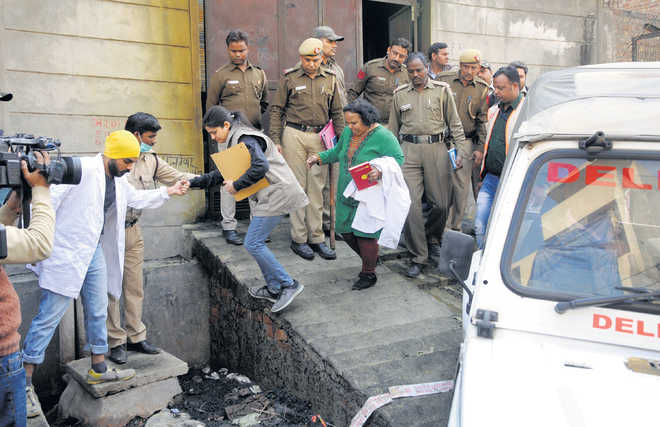Tribune News Service
New Delhi, January 21
The massive fire in Outer Delhi’s Bawana industrial area that killed 17 workers and left several injured has brought the spotlight back on the functioning of municipal bodies which have been granting licences to factories in the national capital.
Almost a month before the Saturday night tragedy, the Delhi Pollution Control Committee (DPCC) had pulled up the Municipal Corporations (MCDs) for indiscriminately granting licences to industrial units.
In an order dated December 22, 2017, the city’s pollution regulator had pointed out that the major cause for the proliferation of illegal industrial units was that the people were able to obtain licences from the civic bodies without consent from the pollution control body.
The DPCC was also critical about the role of the Delhi Jal Board (DJB), which comes under the Delhi government and the power distribution companies for issuing water and electricity connections to such illegal industrial units.
The pollution control body had also barred all the agencies from granting any sort of licences including water and power connections to industrial units without their prior approval.
According to the Delhi Master Plan 2021 industrial units could come up only in certain approved zones after obtaining mandatory clearances. The Air and Water (Prevention and Control) Act 1981, also prohibits anyone from setting up any industrial plant without prior consent of the DPCC. “Industries are operating both in approved industrial, redevelopment and in residential areas without obtaining prior approval from the DPCC,” read the order. In December last year, the Supreme Court appointed Environment Pollution (Prevention and Control) Authority Chairperson Bhure Lal had raised the issue of air pollution caused by industries running in Badli, Bawana and Narela areas during a meeting with Lt Governor Anil Baijal.
The EPCA had also sought to know the total number of such industrial units functioning in Delhi, however, the DPCC and the municipal agencies failed to provide the data.
Unlock Exclusive Insights with The Tribune Premium
Take your experience further with Premium access.
Thought-provoking Opinions, Expert Analysis, In-depth Insights and other Member Only Benefits
Already a Member? Sign In Now











